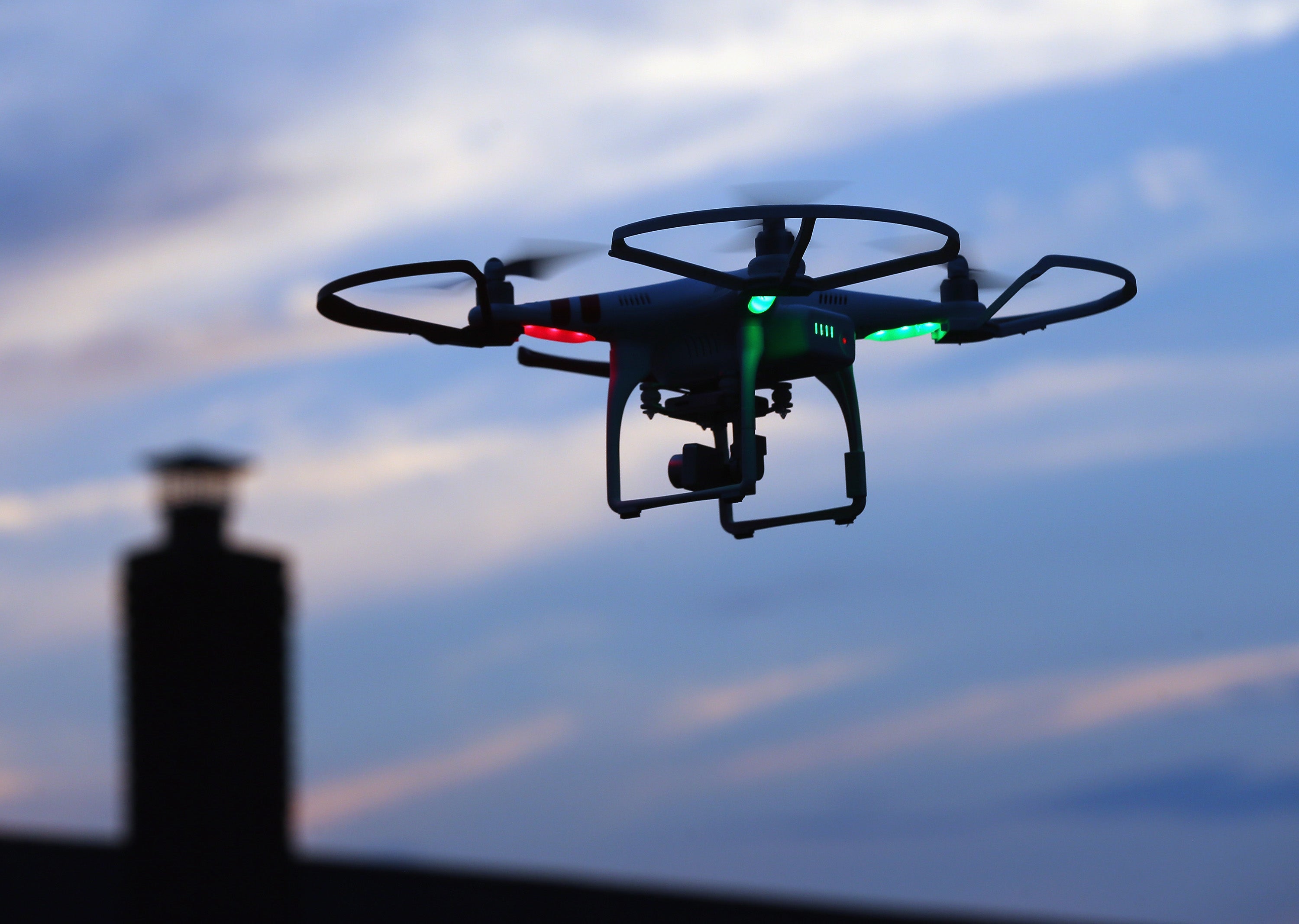Police to trial use of drones as first responders to emergencies
Trials to begin in Norfolk, Thames Valley and Hampshire next year, following similar moves in the US and across Europe

Your support helps us to tell the story
From reproductive rights to climate change to Big Tech, The Independent is on the ground when the story is developing. Whether it's investigating the financials of Elon Musk's pro-Trump PAC or producing our latest documentary, 'The A Word', which shines a light on the American women fighting for reproductive rights, we know how important it is to parse out the facts from the messaging.
At such a critical moment in US history, we need reporters on the ground. Your donation allows us to keep sending journalists to speak to both sides of the story.
The Independent is trusted by Americans across the entire political spectrum. And unlike many other quality news outlets, we choose not to lock Americans out of our reporting and analysis with paywalls. We believe quality journalism should be available to everyone, paid for by those who can afford it.
Your support makes all the difference.Police plan to use cutting-edge drones as first responders to emergencies with trials beginning next year across the UK.
Initial trials under scheme Project Eagle X, will begin in Norfolk which has limited access to police helicopters because they are stationed so far away.
Further tests will also take place in Thames Valley Police and Hampshire, and if successful, the devices would be stationed on buildings and operated remotely to be sent to scenes first and relay early information to the police.
Police in England and Wales are working with officers in the US as similar trials have taken place in San Diego.
The drones as first responders (DFR) devices are also set to be trialled in Belgium and the Netherlands.
Neil Sexton, who advises the National Police Chiefs’ Council on the use of drones, said: “DFR is a drone that sits autonomously on a roof somewhere in a city and it’s in a box, it’s protected.
“From a control station that receives a 999 call it can be launched completely remotely, flying overhead an incident to gain situational awareness that will be fed back not just to that control station or control room, but also to the first responders who are about to arrive on the ground.”
The hope is that the drone would give more accurate information on the potential scale of an incident than a potentially shocked member of the public who has called 999, and get there quicker than a helicopter.
“The ability to get a remote aircraft overhead an incident that is still developing to gain a better situational awareness [is] much improved over phone calls from members of the public who are under stress,” Mr Sexton said.
“Sitting overhead, it can tell you straight away whether you’re talking about a major road traffic collision that requires three fire engines and four ambulances, or whether it’s a minor prang and someone’s getting overexcited.”
Currently, police forces in England and Wales use about 400 drones that cannot be flown out of the operator’s line of sight.
Plans are in place to amend those rules to allow police operators to do so, with initial trials taking place in areas with closed-off airspace next year.
Forces are also planning much wider use of retrospective facial recognition technology, with chiefs proposing to double its use by May.
The biometric software, hailed as significant a step forward for policing as DNA analysis, is used to compare images from sources such as CCTV with forces’ databases of custody shots.
Britain’s largest police force the Metropolitan Police has already said it will use the software to catch prolific shoplifters caught on CCTV.
South Wales Police, one of the forces to spearhead the use of live and retrospective facial recognition, is also piloting software that can be used by officers on their mobile phones.
Around 50 officers currently have access to an app on their phones that allows them to take a photo of a suspect and compare it to the force’s mugshot database.
If the test is successful, the system could be rolled out across England and Wales.
Join our commenting forum
Join thought-provoking conversations, follow other Independent readers and see their replies
Comments